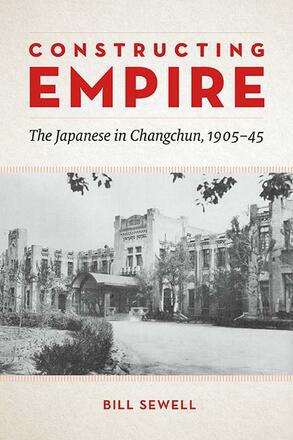
While other studies focus on the role of diplomats and the military, Constructing Empire demonstrates that building the Japanese empire also required civilian participation.
Description
Civilians play crucial roles in building empires. Constructing Empire shows how Japanese urban planners, architects, and other civilians contributed to constructing a modern colonial enclave in northeast China, their visions shifting over time. Japanese imperialism in Manchuria before 1932 resembled that of other imperialists elsewhere in China, but the Japanese thereafter sought to surpass their rivals by transforming the city of Changchun into a grand capital for the puppet state of Manchukuo. This book sheds light on evolving attitudes toward empire and perceptions of national identity among Japanese in Manchuria in the first half of the twentieth century.
Reviews
[Sewell] succeeds in demonstrating the complexity of Japanese society in Changchun/Xinjing. Constructing Empire’s detailed chapters will be indispensable to graduate students and faculty researching or teaching the Japanese Empire and Japanese urban history.
- Alan Thornton
This book serves as a study of an important dimension of Japanese imperialism and, at the same time, an exploration of an audacious undertaking in twentieth-century urban high modernism... [Sewell] offers an unexpected finding in the degree of continuity in the life of Japanese Changchun that might encourage us to reconsider, at the "street level", the sharpness of the great divide of imperial history conveniently marked by the Japanese conquest of 1931.
- Yoshihisa Tak Matsusaka, Wellesley College
The narrative in these chapters is grounded in vibrant historic detail, which results in a readable, empirically rich account.
- Sherzod Muminov
"The quality and the amount of research [Bill Sewell] has done is very impressive, and the book is sophisticated and informative."
- Yuxin Ma